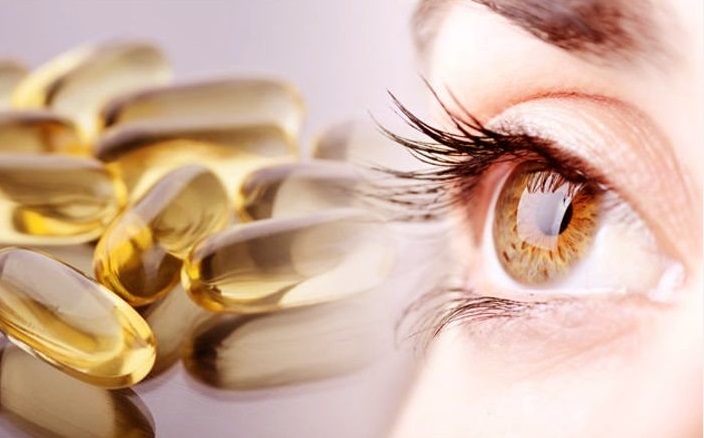Taiwanese Study Uncovers Dietary Supplements That Can Help in the Treatment of Dry Eye Syndrome
Nikhil Prasad Fact checked by:Thailand Medical News Team Jan 20, 2025 2 months, 3 weeks, 3 days, 9 hours, 5 minutes ago
Medical News: Dry eye syndrome (DES) is a widespread condition characterized by the instability of the tear film, leading to inflammation and discomfort in the eyes. Affecting millions of people globally, DES significantly impairs quality of life. Key contributors to this condition include oxidative stress, environmental factors, and inflammation. Researchers have been exploring alternative treatments, and one promising area is dietary supplementation.
 Taiwanese Study Uncovers Dietary Supplements That Can Help in the Treatment of Dry Eye Syndrome
Taiwanese Study Uncovers Dietary Supplements That Can Help in the Treatment of Dry Eye Syndrome
A recent study spearheaded by scientists from Chung Shan Medical University Hospital, National Yang Ming Chiao Tung University, Taipei Medical University, and Changhua Christian Hospital, Taiwan, delves into how a specific blend of dietary supplements can improve tear secretion and reduce ocular inflammation. This
Medical News report highlights their findings and implications.
The Study at a Glance
The researchers conducted an open-label intervention trial involving 52 participants, all diagnosed with moderate to severe DES. These participants were divided into two groups: one receiving the dietary supplement and the other serving as the control. The supplement comprised eicosapentaenoic acid (45 mg/day), docosahexaenoic acid (30 mg/day), lutein (30 mg/day), and zeaxanthin (1.8 mg/day). The trial lasted 12 weeks, with tear secretion and inflammation assessed through standardized tests.
Key Findings from the Study
-Improvement in Tear Secretion: Participants in the supplement group exhibited a significant increase in tear secretion, measured through Schirmer’s test. This improvement indicates enhanced tear production, a critical factor in managing DES symptoms.
-Reduction in Inflammatory Markers: A notable reduction in the levels of pro-inflammatory cytokines, such as interleukin-6 (IL-6) and interleukin-8 (IL-8), was observed in the tear samples of the supplement group. These markers are commonly elevated in DES, contributing to ocular discomfort and damage.
-Enhancement of Antioxidant Capacity: While oxidative stress levels remained stable in the supplement group, the control group showed an increase in tear oxidative stress after 12 weeks. This difference underscores the potential of the supplement to stabilize the oxidative environment in the tear film.
-Symptom Alleviation: The supplement group reported significant improvements in their ocular surface disease index (OSDI) scores. A decrease of 14.6 points in OSDI scores demonstrates reduced discomfort, irritation, and dryness.
Mechanisms Behind the Benefits
The study attributes the benefits of the dietary supplements to their unique composition:
-Omega-3 Fatty Acids (EPA and DHA): These components mitigate inflammation and oxidati
ve stress, promoting better tear film stability and ocular surface health.
-Lutein and Zeaxanthin: Known for their antioxidant and anti-inflammatory properties, these carotenoids protect the ocular surface from damage caused by oxidative stress and harmful blue light.
Together, these components address the core mechanisms of DES, including oxidative damage and inflammatory responses, rather than just alleviating symptoms.
Considerations and Challenges
While the study reveals promising results, some challenges merit attention. Participants in the supplement group had a higher proportion of previous ocular surgeries and shorter sleep durations, factors that could influence the outcomes. Additionally, the relatively small sample size of 52 participants limits the generalizability of the findings. The study also employed an open-label design, which may introduce biases.
Concluding Remarks
This study highlights the potential of multicomponent dietary supplements as an effective, safe, and sustainable approach to managing DES. Over 12 weeks, supplementation improved tear secretion, reduced inflammation, and alleviated symptoms. These results support the growing interest in dietary interventions as a complement or alternative to traditional DES treatments, such as artificial tears and prescription medications.
Future research with larger sample sizes and extended study durations is essential to confirm these findings and explore the long-term benefits of such supplements. Additionally, examining the interaction between dietary factors, environmental conditions, and lifestyle habits can provide deeper insights into managing DES.
The study findings were published in the peer-reviewed journal: Antioxidants.
https://www.mdpi.com/2076-3921/14/1/103
For the latest on Dry Eye Syndrome, keep on logging to Thailand
Medical News.
Read Also:
https://www.thailandmedical.news/news/therapeutic-potential-of-glycerol-in-managing-dry-eye-disease
https://www.thailandmedical.news/news/taiwanese-study-uncovers-the-benefits-of-cassiae-tea-for-eye-health-in-the-elderly-and-smartphone-users
https://www.thailandmedical.news/news/diquafosol-a-new-hope-for-dry-eye-sufferers
https://www.thailandmedical.news/news/indonesian-study-finds-sars-cov-2-in-conjunctival-secretions-and-tears-of-those-with-mild-covid-19-while-and-dry-eyes-prevalent-in-moderate-to-severe-
https://www.thailandmedical.news/news/covid-19-news-study-finds-that-sars-cov-2-infection-worsens-dry-eye-conditions-in-many
https://www.thailandmedical.news/news/dry-eye-syndrome:-symptoms,-causes-and-treatments-
